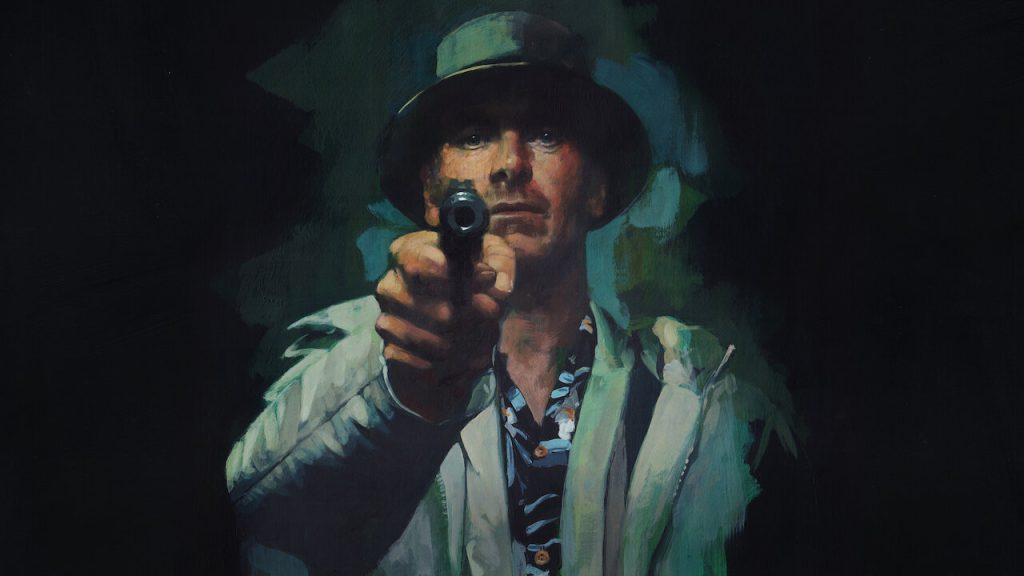
Some recent highlights from the Stream & Dream Lounge:
The Killer (Netflix)
David Fincher’s new film, with Michael Fassbender playing a high-priced professional assassin, strikes me as one of the very best films of the year. It pays close, richly detailed attention to the eponymous marksman as he waits for his “target” to appear, and continues with that ironic lucidity and tense, eerie calm even as the mission goes awry and the pace necessarily quickens.
At times, we hear the character’s thoughts, and the music on his earbuds (he prefers Morrissey and The Smiths), and we soon come to recognize a compressed emotional tension beneath his mantric insistence that he is—and must be—a nihilist, pragmatist, a kind of self-shielding automaton. Fassbender’s quiet, precise performance evokes both the intensity and the pathos of this man’s relentless self-abnegation.

The story advances more by showing than by telling, and nearly every shot in the movie has something worth seeing and thinking about. And when the assassin’s interior monologue switches to the second person pronoun, the “you” he speaks of might also be us, you, me—the movie’s viewers.
Afire (multiple streaming services)
A rather self-absorbed young German novelist and his best friend check into a summer cottage near the Baltic Sea. They are surprised to find that they must share the place with Nadja (Paula Beer), a smart, attractive young woman who is quite friendly, but maybe a bit mysterious as well. The lifeguard from the local beach gets involved too, and Afire becomes a wry, shape-shifting group portrait—part comedy, part psychodrama—as the characters’ illusions about each other, and about themselves, play out. (Soon there is a forest fire edging dangerously close as well.)
Pudgy Thomas Schubert is especially good as the peevish, passive aggressive young novelist. And Beer is excellent as Nadja—who seems to be a person of real but temporary interest to all three males, but finds herself appreciated, or even adored, in unsatisfactory ways. (When Thomas’ editor comes for a brief visit, he gives the bulk of his attention, and approval, to Nadja’s writings and to the photographs of best friend Felix.) The lifeguard and the best friend spend less time in the foreground, but they are every bit as complicit in this darkly romantic roundelay of delusion and misjudgment. Afire is the work of the esteemed German auteur Christian Petzold (Undine, Transit, Phoenix).
Past Lives (multiple streaming services)
As children in Korea, Nora (aka Na Young) and Hae Sung were exceptionally good friends. Years later, she’s living in New York with her American husband when the two of them reconnect via email, and Hae Sung decides to come to New York for a visit. Writer-director Celine Song intertwines scenes from their youthful encounters with scenes from the present, and both reflect on Korean traditions of lovers’ relationships with past lives.

The later stages of the film linger attentively over the complex emotions that emerge with all three characters (including the husband) during the brief but momentous visit. Greta Lee (as Nora), Teo Yoo (Hae Sung), and John Magaro (Arthur, the husband) all deliver exquisitely subtle and incisive performances. It’s not a tearjerker, but it is quietly perceptive and, at times, very moving.
Fair Play (Netflix)
Emily (Phoebe Dynevor) and Luke (Alden Ehrenreich) are young folks working at a hedge fund run by rather hard-nosed guy named Campbell (Eddie Marsan). It’s against company policy, but the two of them fall for each other, begin a serious romance, and half-commit to getting married. But their respective dealings with Campbell complicate things, and when she’s given a promotion that was rumored to be going to him, things get very messy for them, and very provocative and intriguing for us viewers.
What results is what one reviewer called a “relationship thriller.” I like the phrase but prefer to say it’s part psychodrama, part satire on the culture of corporate finance, part tragicomic romance—an exercise in amour fou in which both lovers are warped by mixtures of ambition, suspicion and delusion. Both are victims of the very values they mean to celebrate. Dynevor’s performance in the true lead role is outstanding. Fair Play was written and directed by Chloe Domont.

Be the first to comment